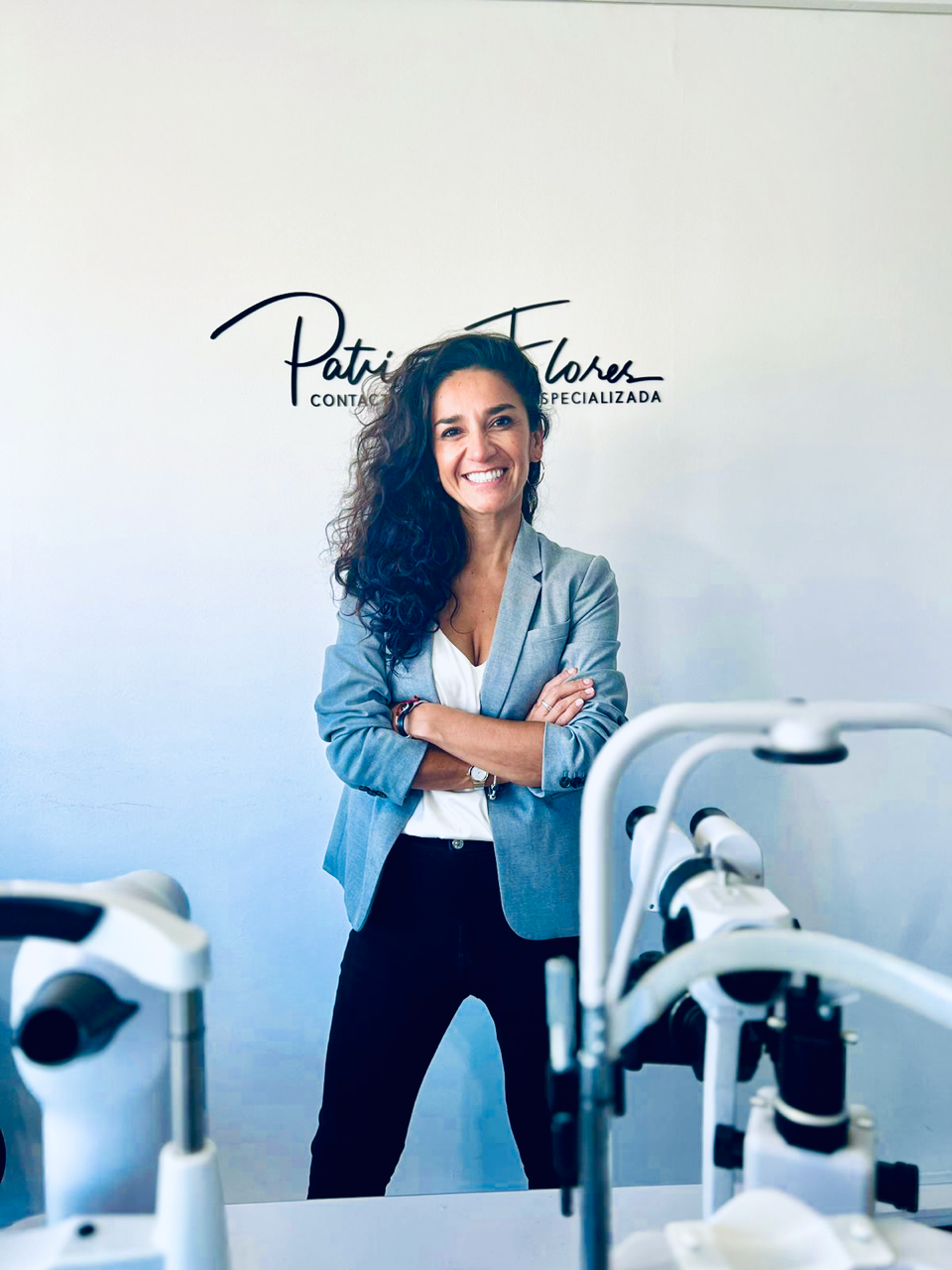
Meet the remarkable Dr Patricia Flores MSc, OD, PhD— a trailblazer in myopia control and complex contact lens fits in South America. Outside of her clinic in Chile, Dr Flores lectures across Latin America and around the world, and lends her expertise to Menicon‘s specialty lens division.
Read on for Dr Flores’ thoughts on the evolving landscape for women in optometry in South America, the pressing issues affecting women in optometry today—and much more.
Hi Dr Flores! Tell us a bit about what you do.
I am an optometrist. I finished my first degree, master’s and finally PhD at the University of Madrid in Spain. I worked in my private clinic in Valparaiso and at Global Professional Service, a specialty lens division for Menicon in Japan.

What inspired you to get into this area?
I’ve been interested in contact lenses from the beginning of my career. This was a very innovative area for my country, so I decided to explore more about specialty contact lenses for patients with diseased ocular surface and irregular corneas. In the beginning, maybe 20 years ago, the corneal topographer was not often used in practice, which started the beginning of my career – trying to better analyse corneal topography in complex patients.
In the past, this kind of work, relating to creating custom contact lenses, didn’t exist in my country.
How has the optometry industry changed for women in South America over the course of your career?
Not only in the optometry industry, but in all health industries, women’s work has changed a lot since I started out.
I come from a country where women’s work is more related to domestic issues than commercial health industry work, so the situation has changed a lot. For example, I am a woman, I am a mom – I have two children with a 5-year gap in between them, and I also have my private clinic and work for a multinational (Menicon). My case is just one example of how things have changed for women in health industry in the last years.
What excites you most about your work, and what are the biggest challenges?
The most exciting thing for me is trying to innovate into the new areas we need in South America, but it’s not easy to collaborate multidisciplinary work across ophthalmologists, technicians, optometrists, optics, all working towards the same objective—to improve the quality of life for our patients.
The biggest challenge is trying to find enough time to continue learning about my area of optometry.
Which of your personal attributes contributes to your success at work?
The key is perseverance. From when I was a child, I have strived to be persistent in my objectives instead of trying to get a fast result.
I am convinced that if you work hard and believe, you will only achieve success because you are trying and trying and trying and trying again.
What are you most proud of in your career to date?
I’m most proud of creating a beautiful company, a private clinic. I have three ladies that work in my company—another optometrist, receptionist and an accounting person, and these ladies work in a beautiful environment and have very good energy and very good hospitality with the patients.
Second, I am proud because we are a KOL centre for specialty lenses in South America and we are referenced around the globe.
Three, I think it’s so beautiful to see that it’s possible to have different roles in your life. For me, a mum, wife, businesswomen, and being employed in a multinational like Menicon.
Who are your female role models and how have they influenced your career?
I have a few ladies in my mind. One of them is my mom. She gave me the opportunity to explore academic issues from out of home when I was very young. My mom helped me to go out and try to find a better opportunity in Chile in South America, and sometimes this is not very easy.
Second, Jennifer Choo is a women who taught me how to be a leader, with strategy but always close to people and very kind with all her employees.
Another female mentor is the former President of Chile, Michelle Bachelet. The first woman president in Chile, she started a revolution to improve the role of the woman in industry and for health and domestic issues. She was the High Commissioner for United Nations, speaking up for women’s rights defenders.
You’re one of the founders of Global Ophthalmic Women (GLOW).
What are the biggest issues affecting women in optometry today?
Not different to other continents around the world, the biggest issue affecting optometry in my continent, South America, is trying to get equality, gender opportunity, compared to men. Also, trying to get enough support from employers and family to reach your professional and academic goals.
What advice would you give early-career female optometrists in South America?
That an empowered woman is built, not born with it. That being a woman, mother, daughter, wife does not limit you, on the contrary it gives you tools to be more productive every day. Not limiting ourselves by possible gender inequalities in our continent—perseverance and continuous work pays off.
